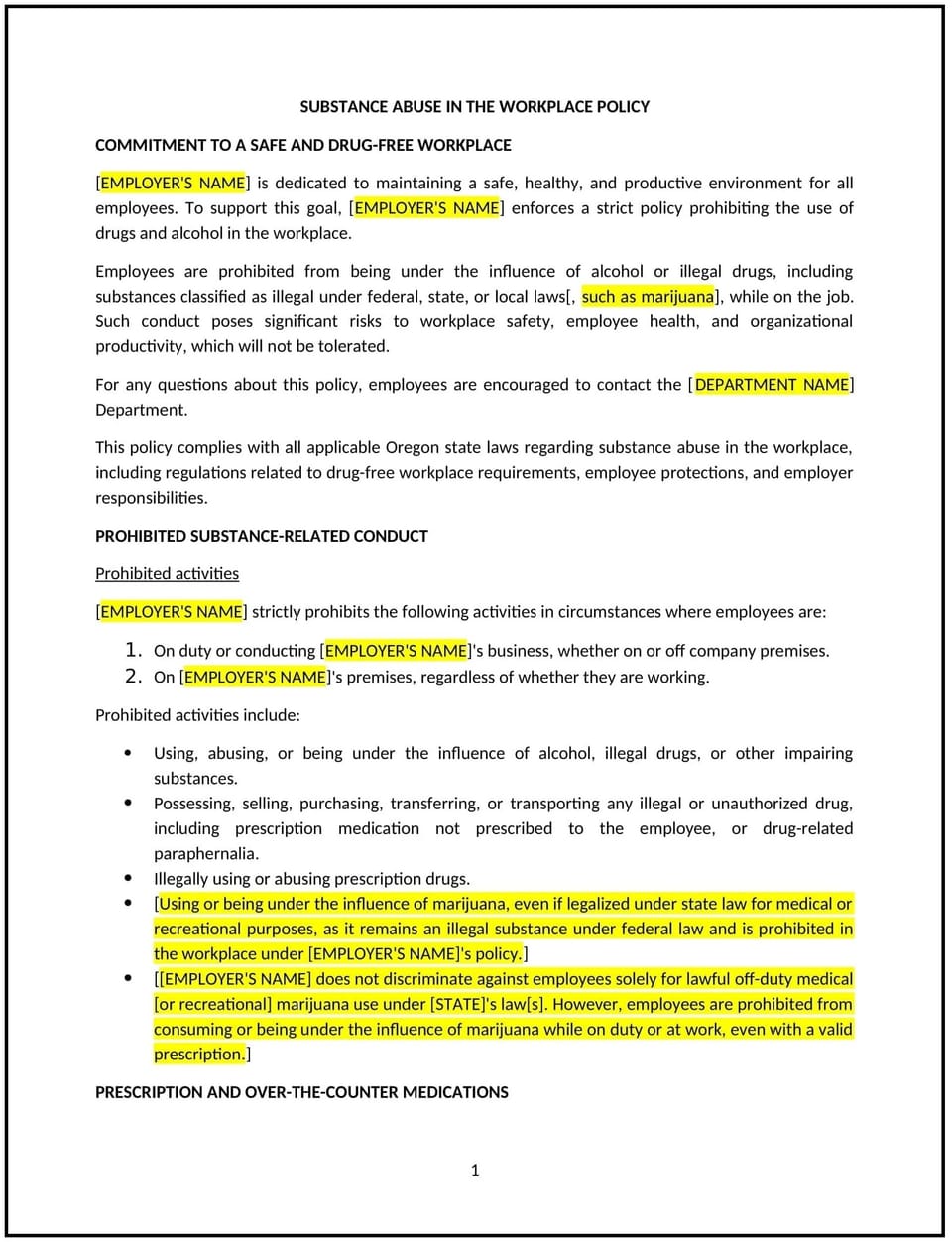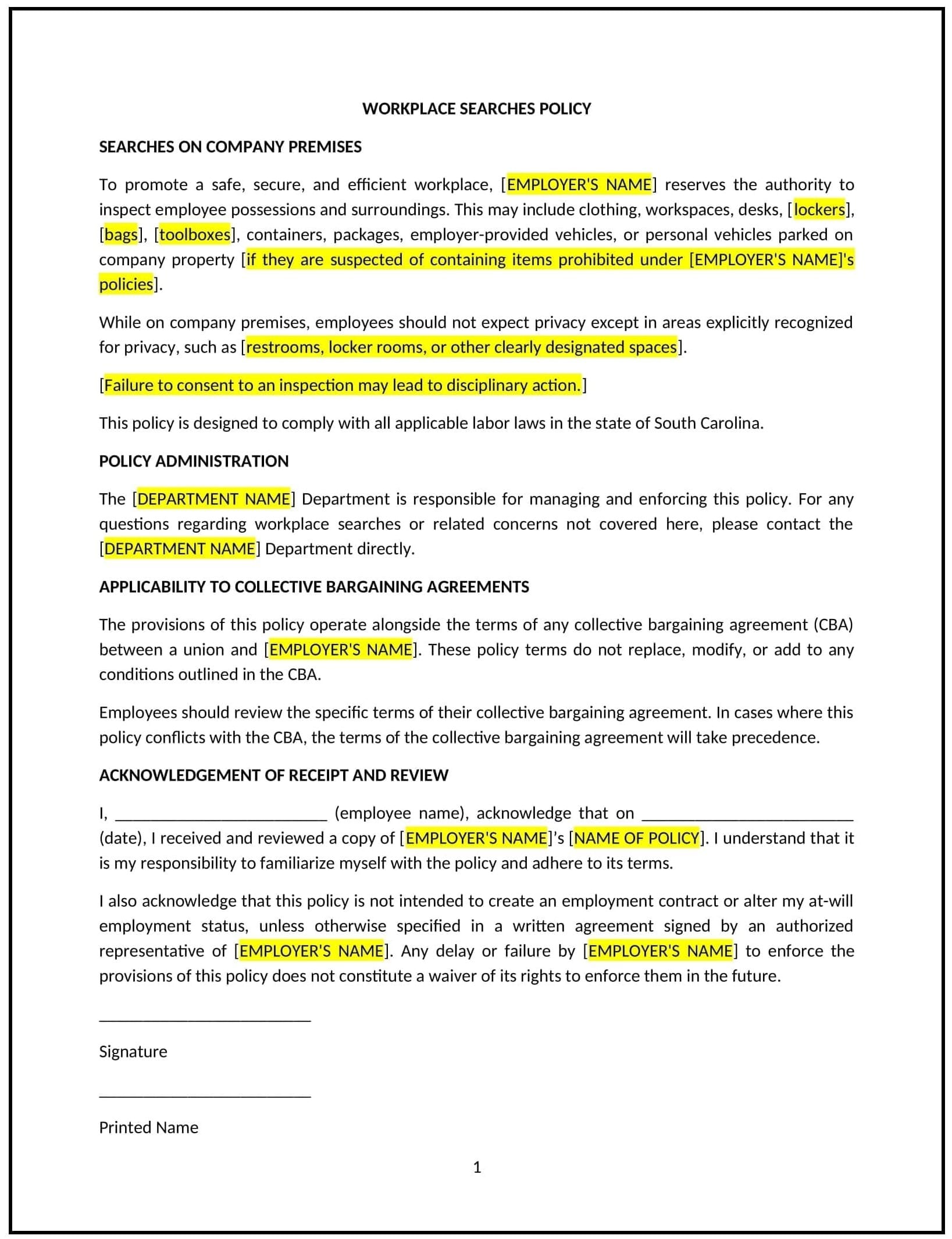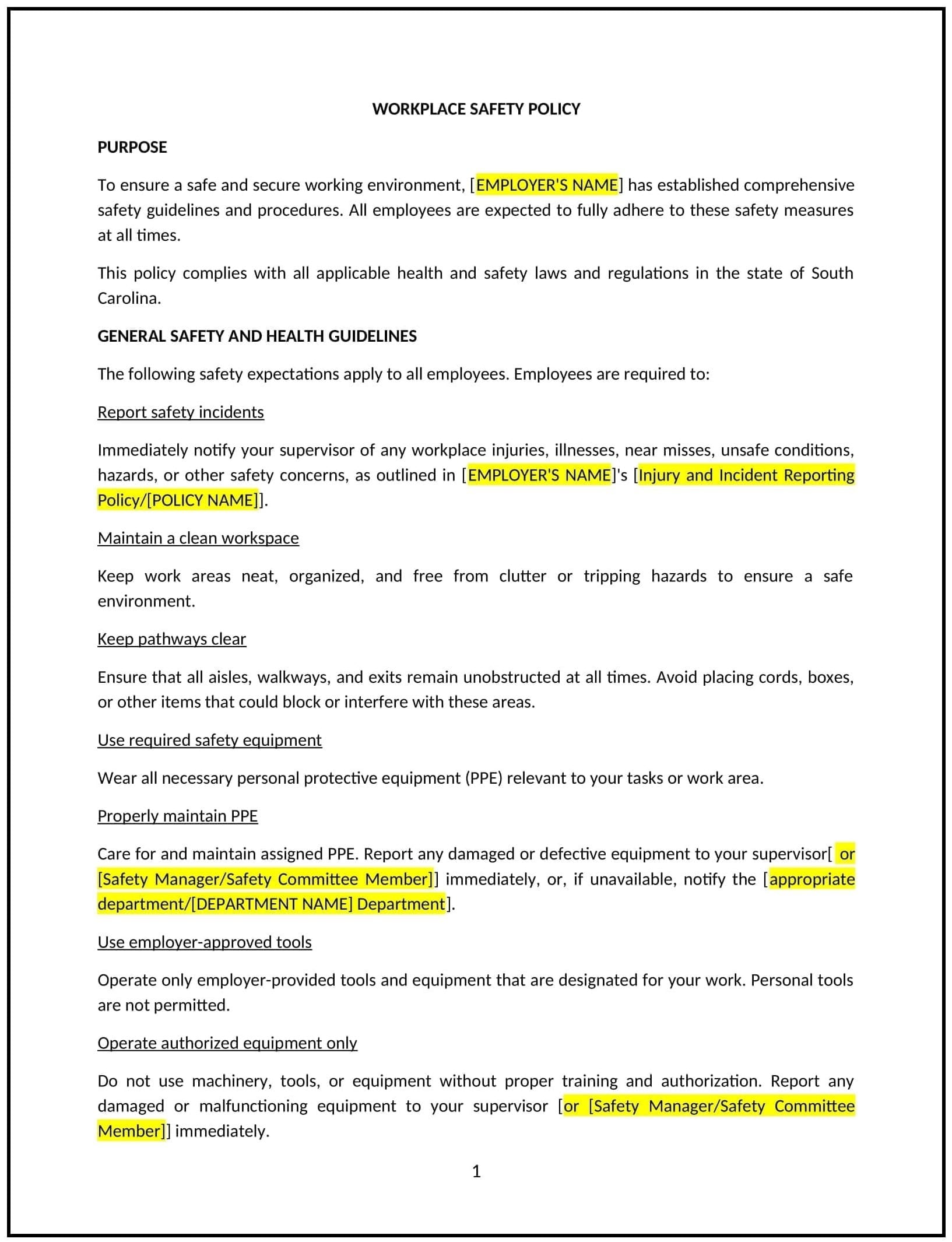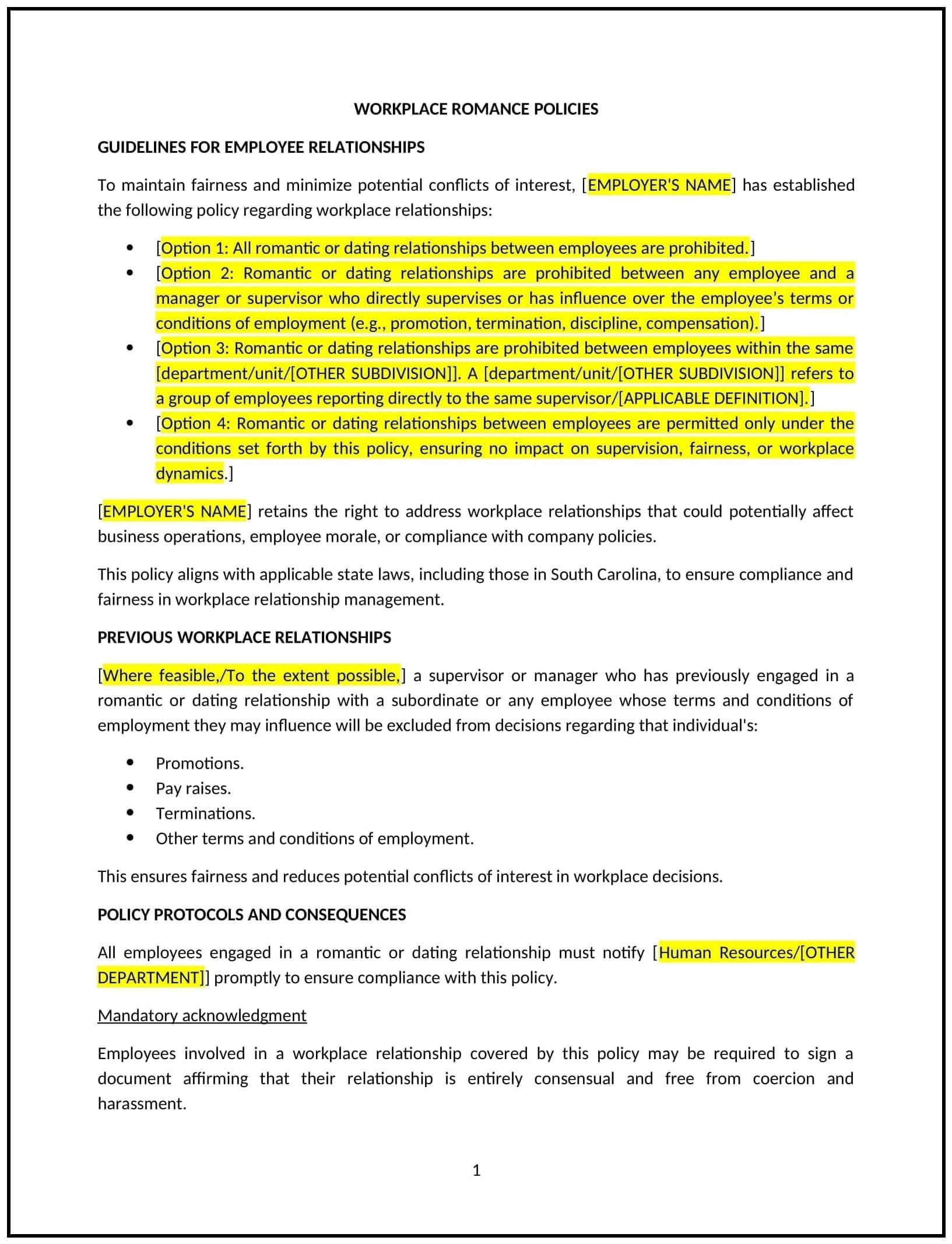Substance abuse in the workplace policy (Oregon): Free template

Substance abuse in the workplace policy (Oregon)
This substance abuse in the workplace policy is designed to help Oregon businesses maintain a safe, productive, and drug-free work environment. The policy outlines prohibited behaviors, testing procedures, and support for employees dealing with substance abuse issues.
By implementing this policy, businesses can reduce workplace risks, support employee well-being, and promote a professional atmosphere.
How to use this substance abuse in the workplace policy (Oregon)
- Define prohibited behaviors: Clearly specify what constitutes substance abuse, including the use, possession, or distribution of illegal drugs or misuse of alcohol or prescription medications in the workplace.
- Establish testing protocols: Outline when testing may occur, such as pre-employment, random, post-incident, or reasonable suspicion testing, in compliance with Oregon laws.
- Provide reporting guidelines: Encourage employees to report concerns about substance abuse through confidential and accessible channels.
- Offer employee support: Include resources such as employee assistance programs (EAPs) or rehabilitation services for employees seeking help.
- Address disciplinary actions: Specify consequences for violations, such as suspension, mandatory rehabilitation, or termination.
- Highlight exceptions: Address any applicable exceptions, such as prescribed medical marijuana use under Oregon law, and clarify how they are managed in the workplace.
- Review regularly: Periodically assess and update the policy to reflect changes in Oregon laws, business practices, or workplace needs.
Benefits of using this substance abuse in the workplace policy (Oregon)
Implementing this policy provides several advantages for Oregon businesses:
- Enhances safety: Reduces risks of accidents or incidents related to substance use.
- Supports employee health: Encourages employees to seek help for substance abuse issues without fear of judgment.
- Promotes productivity: Maintains a focused and professional work environment.
- Protects the business: Mitigates liability risks associated with workplace substance use.
- Reflects Oregon-specific practices: Tailoring the policy to local laws and workplace dynamics ensures compliance and practicality.
Tips for using this substance abuse in the workplace policy (Oregon)
- Communicate expectations: Share the policy with employees during onboarding and provide regular reminders.
- Provide training: Educate managers and employees on recognizing and addressing substance abuse issues in the workplace.
- Foster a supportive culture: Encourage open dialogue and ensure employees feel comfortable seeking assistance.
- Monitor compliance: Conduct periodic reviews to ensure testing protocols and other measures align with Oregon-specific legal requirements.
- Gather feedback: Use employee input to refine and improve the policy over time.
Q: What substances are prohibited under this policy?
A: Prohibited substances include illegal drugs, alcohol, and the misuse of prescription medications while on company property or during work hours.
Q: Are employees allowed to use medical marijuana under this policy?
A: Businesses should address medical marijuana use in compliance with Oregon laws, considering workplace safety and job-specific requirements.
Q: When can businesses require substance testing?
A: Testing may occur pre-employment, randomly, after an incident, or when there is reasonable suspicion, in line with Oregon regulations.
Q: What resources are available to employees struggling with substance abuse?
A: Businesses should provide access to employee assistance programs, counseling services, or referrals to rehabilitation programs.
Q: What are the consequences for violating this policy?
A: Consequences may include suspension, mandatory rehabilitation, or termination, depending on the severity of the violation.
Q: How can businesses address substance abuse while supporting affected employees?
A: Businesses should offer resources for recovery, maintain confidentiality, and ensure disciplinary actions are fair and constructive.
Q: How often should this policy be reviewed?
A: The policy should be reviewed annually or as needed to reflect updates in Oregon laws or workplace practices.
This article contains general legal information and does not contain legal advice. Cobrief is not a law firm or a substitute for an attorney or law firm. The law is complex and changes often. For legal advice, please ask a lawyer.


